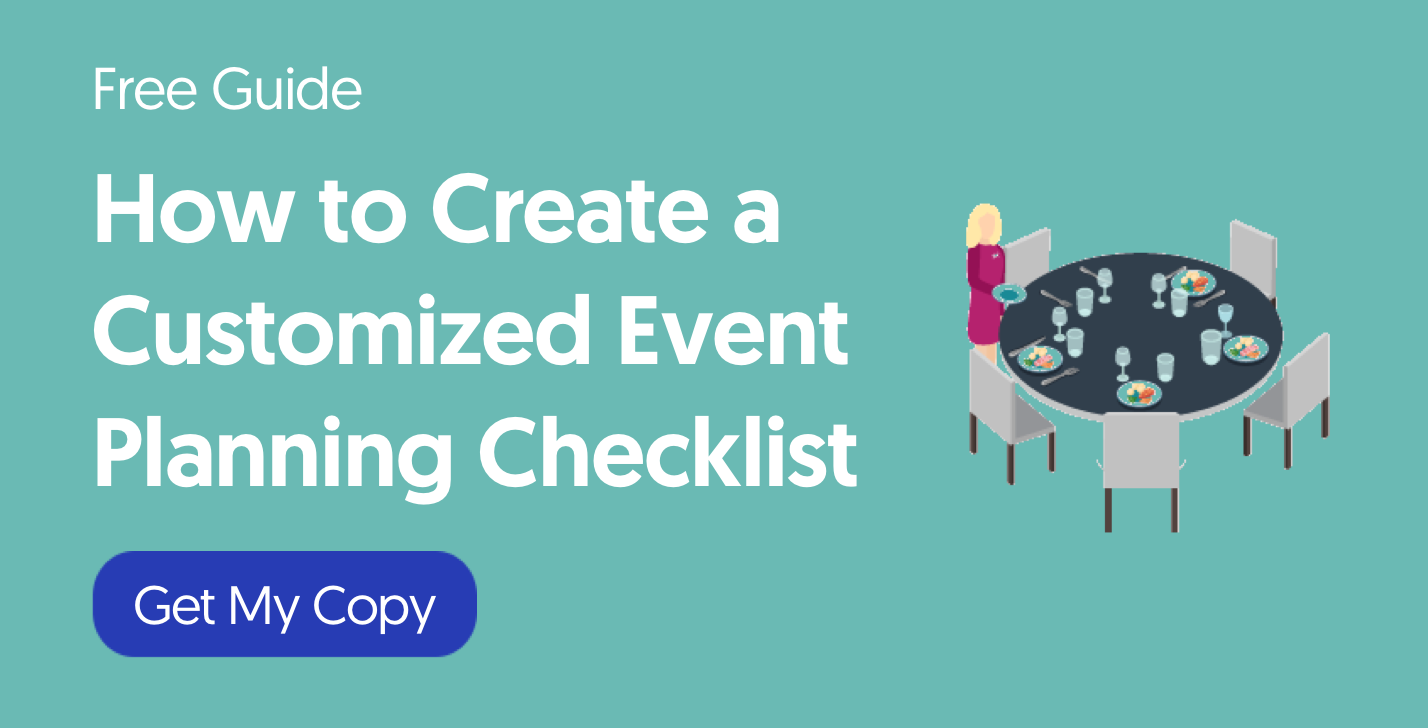
12 Must-Know Strategies for Marketing Virtual and Remote Events
Virtual and online events are becoming more commonplace in the modern era. They allow businesses to reach a global audience with hundreds of people in different places at different times. Planning, promoting, and hosting a virtual event requires the same attention to detail as a real-life event requires. For virtual events, however, specific event advertising strategies ensure your online program won’t get lost in the digital shuffle. Learn how to promote virtual events so that attendees sign up, tune in, and engage.
Discover 12 virtual event promotion strategies to use right now
1. Create an attention-grabbing event page
This is the place where everyone goes to learn about your event. Use a simple tool like Cvent Flex to make it stand out and entice people to sign up by including eye-catching graphics, professional pictures and engaging clips of keynote speakers, workshop leaders, and performers. Keep people from wandering away from your page by embedding all relevant videos, pictures, and other media so they don’t have to find it elsewhere. Finally, include all of the essential details so your event page is a one-stop shop for information and attendee actions:
- Time and date(s) of the event
- An agenda
- Speaker bios
- Sponsor information
- Sign-up links
- Secure payment options
2. Use keywords to boost your search potential
You probably already use keywords to rank your business website or published content with search engines. Use a keyword planning tool like Google Ads to discover what relevant words people are searching for most often and include them in the content you use to promote your virtual event.
You can also uncover relevant words with a simple Google search. Imagine you want to promote your ˜virtual marketing industry networking conference.’ First, search those words and similar phrases, such as ˜marketing industry online meetup’ and ˜digital marketing virtual training.’ Then for each of those phrases take note of:
- Autocompletes
- The ˜People also ask’ results
- The ˜Searches related to [your keywords]’ at the bottom of the first SERP
In these results, you’ll find other words to include in your online promotional copy.
3. Make the most of email marketing
In an era of social media marketing, people forget that email is still a ˜thing.’ But email marketing is still an effective strategy in all areas of business. Send out email newsletters to your curated email list to share news about upcoming events. Don’t inundate those inboxes, but do send out emails with new event announcements, exciting updates, and post-event wrap ups. To bolster interest, pepper your email newsletters with lively imagery that conveys engagement even in an online format, and offer special discount codes.
4. Offer people a peek at what’s to come
Why wait until your event to share valuable information? In the same way that a movie trailer excites people to see a motion picture, a short preview of your event will entice people to register and get excited about what’s to come. Pique interest with brief interview segments of your speakers and highlights of what to expect throughout the event. But don’t provide all of your clips at once”space out segments every few days so people keep coming back to your website in the run up to the event.
5. Leverage social media across platforms
There are a million ways to promote your virtual event through social media. Take the time to announce your virtual event and post it on all of your company’s social media accounts.
- Facebook Events is free, easy to share, and keeps track of your RSVPs.
- LinkedIn is a great place to boost your event promotion with the option of ads, groups, pushing through your company page, and even promoting on your own.
- Create a hashtag for your event and spread the word through a mini-tweet storm.
- Head into your forums and announce your virtual event”then invite everyone to join in.
- Share pictures and video clips on Instagram.
6. Ask your sponsors and partners to spread the word
When your sponsors and partners promote your virtual event, it markets your program exponentially”this benefits all stakeholders. Don’t be shy; ask your sponsor directly to notify their contacts and followers about your virtual event. Provide the affiliate link, as well as links to social media pages and any other content you publish. And share any relevant materials such as graphics, announcements, and your social media hashtag.

7. Request self-promotion from your speakers
You’ve done all the work to book a keynote speaker, now ask them to do a bit of self-promotion on your behalf. Chances are, most speakers will cross-promote themselves to their audience anyway, but some will need a gentle nudge. Provide the information they need to advertise your virtual event and offer suggestions on how to promote your event on social media and other channels.
8. Tell people to tell their friends
Word of mouth is always a good way to inform people what’s happening. Use these strategies to encourage people to share information about your virtual event to increase registration:
- When someone signs up for your virtual event online, provide affiliate links and other tools so they can invite their peers, co-workers, and friends.
- Ask everyone to use your social media hashtags for the virtual event whenever they talk about the event or their anticipation.
- Offer special discounts and perks to everyone who gets a certain number of people to sign up.
9. Channel your inner copywriter
If you have a blog, write an article about the upcoming event. Touch on the highlights and express excitement over the information and the speakers. If you don’t have a blog, chances are you know someone who does. Request a guest blog spot to get the word out about your virtual event. Just make sure the blog is related to the industry or subject matter of the event. Use your event planning software to keep track of your published blog articles.
10. Make a video or vlog and show it off
Everyone loves watching original video content. Create a short video showcasing the event and share it on social media and video platforms like YouTube and Instagram. Research shows that a video two minutes in length is the sweet spot for engagement. Include clips of your speakers and make sure they share the video on their accounts as well. Make it fun and engaging and include a special discount code at the end of the video to boost your sign-up rate. And don’t forget to use your social media hashtag somewhere in the clip.
11. Send out a press release
Though most people associate this method with real-life events, don’t bypass this step for your virtual events. Write a press release to create a buzz”including those keywords you discovered above. Share information about speakers, topics, special guests, and takeaways. Send it to news desks, media outlets, and post on free press release sites.
12. Be consistent with your promotions
Keep working on your virtual promotion strategies up to your event start. Attendees must stay engaged and excited”or they won’t show up. No matter how good your registration numbers look, it doesn’t mean those numbers will convert into attendees on event day. Drum up interest by:
- Offering a ˜secret giveaway’ to attendees at the end of the event.
- Counting down the days/hour/minutes on your event website.
- Share related content on social, and include the event hashtag to keep it top of mind.
Don’t forget to follow-up after the virtual event ends
Stick around after the event is over
Just as you would after a live event, hang around online when the virtual event ends to answer questions or provide additional information that wasn’t covered. This is an excellent opportunity to make new connections and receive immediate feedback.
Set up a link with a full recording of the event
If your virtual event was successful, people will want to watch it again, or catch it for the first time. Send a link to attendees and to people who expressed interest, but couldn’t attend. Offer the recording to late visitors to your event website when they sign up for future event alerts. Include a timestamp menu, so people can jump to the section they need, whether that’s the keynote speech, a specific training, or a musical performance. Offering a recording allows you to re-engage and stay connected. It also allows you to watch and analyze your event to determine what to fix for next time.
Send out post-event surveys and polls
Follow-up surveys provide great insight into what you did right, so you can repeat and expand upon that next time. By asking the right post-event valuation questions, they also offer a glimpse into areas that need improvement. Find out what your guests liked (and disliked) the most about your event, keep a record of the feedback, and make adjustments for promoting your next virtual event.
Promoting and planning a successful virtual event takes time and persistence, but the result is well worth the effort. As long as you stay on top of the promotion and follow up with participants, you’ll congratulate yourself and your virtual team on a job well done.
Next up, learn the best Facebook Groups every event planner should join. Or, discover how you can track tasks and stay organized with event planning software.

